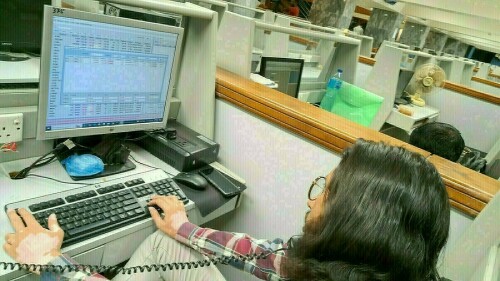PSX Rebounds as KSE-100 Index Climbs 881 Points
The Pakistan Stock Exchange (PSX) experienced a resurgence of buying interest, propelling the benchmark KSE-100 Index upward by 881 points during Thursday’s trading session.
Initially, the KSE-100 faced selling pressure in the early hours, which drove the index to an intra-day low of 115,818.07. However, a wave of robust buying emerged later in the day, pushing the index to an intra-day peak of 116,901.13.
At the close of trading, the KSE-100 Index concluded at 116,901.13, reflecting an increase of 881.03 points, equivalent to a 0.76% rise.
A post-market report from Topline Securities noted that investor confidence was lifted by record-high remittances, which led to an unprecedented current account surplus in March 2025. The surplus for the first nine months of FY25 reached $1.9 billion.
The report further stated that the rally in cement stocks was fueled by a Rs25 increase in cement prices per bag, bolstering the market’s positive momentum.
Topline highlighted that the index’s performance was significantly influenced by heavyweight stocks such as UBL, PSO, NBP, MARI, and MLCF, which collectively contributed 515 points, emphasizing their critical role in sustaining market momentum.
In contrast, Wednesday’s session saw the PSX facing a downturn, with the benchmark index decreasing by 755.40 points, or 0.65%.
In other news, Kuwait has prolonged its oil credit facility to Pakistan for an additional two years. The Kuwaiti Ambassador to Pakistan verified this information during a meeting with Petroleum Minister Ali Pervaiz Malik in Islamabad on Wednesday, according to a statement from the Petroleum Division.
United Bank Limited (UBL) revealed a consolidated profit-after-tax (PAT) of Rs36.11 billion for the quarter ending March 31, 2025, marking a substantial 124% increase from the Rs16.14 billion PAT recorded in the same period in 2024.
The bank communicated these results in a notification to the PSX on Wednesday.
UBL’s earnings per share (EPS) stood at Rs29.34 in Q1 2025, up from Rs13.05 in Q1 2024.
Asian stock markets showed mixed performance on Thursday following remarks from Federal Reserve Chair Jerome Powell, who cautioned about potential risks of slowing growth and increasing prices due to tariffs. Uncertainty surrounding U.S. trade policies kept the dollar near three-year lows.
Technology stocks remained a focal point after a challenging session on Wednesday, triggered by warnings from industry leaders Nvidia and ASML, and ahead of earnings reports from Taiwan’s TSMC.
Safe-haven gold prices continued their upward trajectory, reaching another record high in early trading on Thursday, while Powell’s indication of a slowing U.S. economic growth pushed Treasury yields down.
In early Asian trading, stock markets displayed tentativeness across the region, following sharp declines in U.S. stocks. South Korea’s benchmark index edged up by 0.4%, while Taiwan stocks declined by 0.5%.
Japan’s Nikkei increased by 0.7%, and the yen weakened as Japan began discussions with the U.S. President Donald Trump surprised observers by opting to negotiate directly with the Japanese delegation, stating that there was significant progress.
Powell also noted that the Fed would await further economic data before making any adjustments to interest rates.
The Pakistani rupee experienced a marginal decline against the US dollar, depreciating by 0.06% in the inter-bank market on Thursday. At the close, the currency settled at 280.62, reflecting a loss of Re0.16 against the US dollar.
The volume on the all-share index decreased to 408.07 million from 481.81 million recorded in the previous session.
The value of shares traded declined to Rs32.13 billion from Rs38.54 billion in the previous session.
Maple Leaf led the volume chart with 23.79 million shares, followed by B.O.Punjab with 23.32 million shares, and Cnergyico PK with 17.94 million shares.
Trading occurred in the shares of 445 companies on Thursday, with 212 registering gains, 172 recording losses, and 61 remaining unchanged.



Comments (0)
No comments yet. Be the first to comment!
Leave a Comment